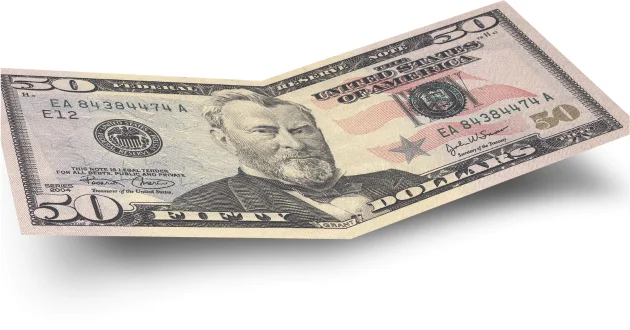
In this blog post, we will delve into the topic of how much $50 is in Nigerian Naira (NGN) on the black market. The black market exchange rate is an alternative currency exchange system that operates outside official channels, and it often provides a different rate compared to the official exchange rate. We will explore the factors influencing the black market rate and its implications for individuals and businesses.
Understanding the Black Market Exchange Rate
To comprehend the value of $50 in Naira on the black market, we must first understand the concept of a black market exchange rate. The black market exchange rate is an alternative currency exchange system that operates outside official channels. It is influenced by supply and demand dynamics and is typically higher than the official exchange rate.
The black market exchange rate arises due to several reasons. One of the primary factors is government regulations and capital controls. In an attempt to control the flow of foreign currencies, governments may impose restrictions on currency conversion or limit access to foreign exchange through official channels. This creates a demand for foreign currencies on the black market, leading to higher exchange rates.
Economic instability is another significant factor contributing to the existence of a black market exchange rate. In countries with high inflation rates, volatile economies, or limited foreign exchange reserves, individuals and businesses may turn to the black market to safeguard their assets or conduct transactions in foreign currencies. The uncertainty surrounding the economy and local currency often leads to a higher demand for stable foreign currencies like the US dollar (USD) on the black market.
Factors Influencing the Black Market Exchange Rate
Several factors contribute to the fluctuations in the black market exchange rate. Understanding these factors can shed light on why the value of $50 in Naira may differ on the black market compared to the official rate. Here are some key factors:
Economic Factors
Economic conditions play a significant role in determining the black market exchange rate. Factors such as inflation, interest rates, and economic stability impact the supply and demand for foreign currencies like the US dollar (USD) in Nigeria. Higher inflation and economic instability often lead to a weaker local currency on the black market.
Inflation erodes the purchasing power of a currency over time. When inflation rates are high in Nigeria, individuals and businesses may prefer to hold more stable foreign currencies like USD, contributing to increased demand on the black market. Economic stability, on the other hand, instills confidence in the local currency and reduces reliance on foreign currencies.
Government Policies and Regulations
Government policies and regulations can heavily influence the black market exchange rate. Capital controls imposed by authorities may restrict access to foreign currencies through official channels, driving individuals and businesses towards the black market. These capital controls can include limits on foreign currency withdrawals, strict regulations on importation or exportation, or requirements for documentation that hinder the free flow of foreign currencies.
Additionally, changes in monetary policies can impact the value of the local currency, thus affecting its exchange rate on the black market. For example, if a central bank decides to devalue the official exchange rate or implement measures that reduce liquidity in the foreign exchange market, individuals may seek alternative channels like the black market for their currency needs.
Demand for Foreign Currencies
The demand for foreign currencies like USD also affects their value in the black market. Various factors contribute to this demand, including importation needs, international business transactions, and remittances from Nigerians living abroad. Importers require foreign currencies to purchase goods from other countries, while exporters receive foreign currencies for their goods or services sold abroad.
Remittances from Nigerians living abroad also contribute significantly to the demand for USD on the black market. Nigeria has a large diaspora population, with many individuals sending money back home to support their families or invest in local businesses. The need for foreign currencies to convert these remittances into Naira drives up demand on the black market.
Supply of Local Currency
The supply of Nigerian Naira also plays a role in determining the black market exchange rate. Factors such as money printing by the central bank and illicit activities that generate large amounts of cash can contribute to an increase in Naira supply. When the supply of Naira is high, its value decreases relative to foreign currencies on the black market.
Money printing by the central bank can lead to an oversupply of Naira in circulation. This excess liquidity can result in inflationary pressures and devalue the local currency against foreign currencies like USD. Additionally, illicit activities that generate large amounts of cash, such as corruption or smuggling, can increase the supply of Naira on the black market.
Historical Analysis of USD to NGN on the Black Market
To gauge how much $50 is worth in Naira on the black market, let’s examine historical trends. It’s important to note that black market rates fluctuate frequently, so these figures serve as a reference point rather than definitive values.
1. Year 2017
In 2017, $50 was roughly equivalent to around 17,500 NGN on the black market. This was a period of economic uncertainty and volatility in Nigeria, leading to a weaker Naira against foreign currencies.
At that time, Nigeria was facing significant challenges due to falling oil prices, which heavily impacted its revenue as oil was a major source of income for the country. The scarcity of foreign exchange resulted in increased demand for USD on the black market.
2. Year 2018
In 2018, $50 was approximately worth around 18,000 NGN on the black market. The value remained relatively stable compared to the previous year due to some economic reforms implemented by the Nigerian government.
During this period, Nigeria witnessed efforts by the government to diversify its economy and reduce dependency on oil revenue. These reforms aimed to stabilize the Naira and improve economic conditions.
3. Year 2019
In 2019, $50 was valued at approximately 19,500 NGN on the black market. The Naira experienced some depreciation during this period due to factors such as declining oil prices and limited foreign exchange reserves.
The global oil price slump affected Nigeria’s revenue and led to increased pressure on its foreign reserves. As a result, individuals and businesses faced challenges accessing foreign currencies through official channels, leading them towards the black market.
4. Year 2020
In 2020, $50 was equivalent to around 24,000 NGN on the black market. This significant increase in value can be attributed to several factors, including economic uncertainties exacerbated by the COVID-19 pandemic and restrictions on foreign currency access.
The pandemic disrupted global trade and caused a decline in oil prices, further straining Nigeria’s economy. The scarcity of foreign currency intensified on both official and unofficial channels, resulting in higher rates on the black market.
5. Year 2021
As of recent times, $50 is valued at approximately 48,000 NGN on the black market. The depreciation of the Naira has continued due to ongoing economic challenges faced by Nigeria, including inflationary pressures and foreign exchange liquidity issues.
The COVID-19 pandemic has continued to impact global economies, including Nigeria’s. Inflation rates have risen significantly, eroding the value of the Naira against major foreign currencies like USD.
6. Year 2022
In 2022, the value of $50 on the black market fluctuated significantly throughout the year. At the beginning of the year, $50 was valued at around 50,000 NGN. However, as the year progressed, the exchange rate experienced volatility and fluctuations.
Various factors contributed to the volatility in the black market exchange rate in 2022. The ongoing economic challenges, including inflationary pressures and limited foreign exchange reserves, continued to put pressure on the Naira’s value against foreign currencies.
7. Year 2023
As of the current year, 2023, the value of $50 on the black market has continued to fluctuate. It is important to note that the information provided for this year is based on historical analysis up until December 2022, and therefore may not reflect the most recent exchange rates.
Given the volatile nature of the black market exchange rate, it is challenging to provide an accurate estimate of the value of $50 in Naira for the year 2023. Factors such as economic conditions, government policies, global events, and market dynamics will continue to influence the exchange rate throughout the year.
Implications for Individuals and Businesses
The fluctuating black market exchange rate has both positive and negative implications for individuals and businesses in Nigeria.
Remittances and Foreign Transactions
For individuals receiving remittances from abroad or conducting international transactions, a weaker Naira on the black market means they receive fewer Naira for their foreign currency. This can impact their purchasing power and ability to meet financial obligations.
Those who rely on remittances from family members working overseas may find it challenging to maintain their standard of living if their remittances are reduced due to unfavorable exchange rates on the black market.
Similarly, businesses engaged in international trade may face higher costs when converting foreign currencies for imports or receive fewer Naira when converting export earnings from foreign markets.
Importers and Exporters
Importers in Nigeria face higher costs when purchasing goods from abroad as they need more Naira to acquire foreign currencies like USD. With a weaker Naira on the black market, importers may need to allocate more funds for their import activities or increase prices for consumers.
On the other hand, exporters benefit from a weaker Naira as they receive more Naira when converting their foreign earnings. This can improve their profitability and competitiveness in international markets.
Investment Decisions
The fluctuating black market exchange rate can also influence investment decisions. Investors may consider potential gains or losses based on the expected movement of the Naira against foreign currencies when evaluating investment opportunities in Nigeria.
A weaker Naira may make certain sectors more attractive for investment as it enhances export competitiveness and increases potential returns for investors when converted back into their home currency.
However, volatility in exchange rates can also introduce uncertainty and risk for investors looking to repatriate their investments or profits out of Nigeria.
Conclusion
Determining how much $50 is worth in Naira on the black market requires an understanding of various economic factors and their impact on exchange rates. The black market exchange rate fluctuates due to economic conditions, government policies, demand for foreign currencies, and supply of local currency. Historical analysis showcases how the value of $50 has changed over time on the black market. The implications of these fluctuations affect individuals receiving remittances, businesses engaged in import-export activities, and investment decisions made within Nigeria. Monitoring these dynamics is crucial for making informed financial decisions in a country where the black market plays a significant role in currency exchange.
Read more: What is a Small Cap Stock


